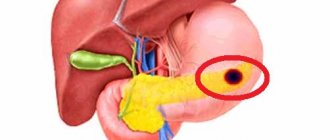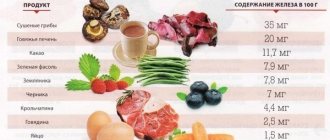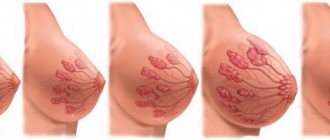The role of potassium in the body of a pregnant woman
Everyone knows that during pregnancy a woman needs to carefully ensure that her body regularly receives all the necessary vitamins and minerals (macro- and microelements).
The health of the unborn baby depends on this. A very important macronutrient, on which the normal formation and functioning of all organs and systems of the unborn child largely depends, is potassium.
Potassium in a pregnant woman’s body takes part in the transport of nutrients to cells, and also actively influences the passage of nerve impulses, the synthesis of glycogen and proteins, and acid-base balance.
In addition, potassium is an excellent assistant in removing excess fluid from a woman’s body. Thanks to this, provided there is sufficient regular intake of potassium in the body, the woman will not experience edema.
The required potassium intake for a pregnant woman is approximately 2.5 grams. If a pregnant woman has a balanced diet, potassium will be supplied in sufficient quantities.
Potassium deficiency can occur due to excessive sweating, frequent vomiting, diarrhea, and also while taking diuretics. If there is a lack of potassium in the body of a pregnant woman, the doctor prescribes additional medications containing this macronutrient. In case of acute potassium deficiency, intravenous administration may be necessary.
Potassium deficiency is very dangerous because it can lead to the development of dystrophy and disruption of the functioning of the cardiovascular and neuromuscular systems. In addition, a lack of potassium in a pregnant woman’s body can cause hypotension, impaired coordination of movements, muscle pain, and drowsiness.
A pregnant woman should know that potassium can be obtained by eating foods such as legumes, dried apricots, grapes, nuts, lettuce, prunes, bananas, peaches. Coffee, alcohol and sugar can reduce the absorption of potassium in a woman’s body, so such products are contraindicated for pregnant women.
Did you like this article?
Share it with your friends
- Pediatrician consultations
- ENT consultations
Child 2 r. 3 months. Child categorically does not want to drink water, but only compote (brewed from wet fruits, fruits in the summer, and then boiled from dried apples). It is not compatible, it is too weak, it is not saturated. The dose is 600_700g throughout the day, more and more. We tried to drink Kurzeme with milk as a snack, but it turned out to be milk. Throughout the day, we eat all kinds of dairy products. porridge, soup, vegetables, meat, ice, etc. How can you not spoil the compote (and the uzvar) in such a quantity?
Child is 5 months old. The child's vagina is 5750 g. Height is 65 cm. Head circumference is 39 cm. Breast circumference is 37 cm. I want to ask you, what can you do to help the child gain more vagina? The baby was breastfed and introduced complementary feeding at 4 months. I didn’t begin to gain any more weight after complementary feeding. In the first month I gained 900 g, the second 700 g. The third 500 g. The fourth 400 g. And in the fifth month 450 g. What do you tell me to work on since I’m already worried? Dyakuyu.
My son is 9.5 months old. We have been eating formula milk since birth, because... I didn't want breasts. The brand of food was not changed. At 5 months she began introducing complementary foods, and by 6 months she had completely introduced vegetables, meat and fruits. He only eats the mixture at night. At night I woke up to eat 3 times, with an interval of 3 - 3.5 hours. For the last 2 months, I started asking at night to eat every 1-1.5 (sometimes 2 hours, rarely). She drinks 120 grams of formula milk, took more than 150 grams, doesn’t drink it, leaves those extra 30 grams and asks again after 1.5 hours. With what it can be connected?
Good evening. Ditin 2.6 rocks. The child was ill for more than two weeks (the throat was sore on the right side with a point) without a runny nose. A week after falling ill, the child developed a cough. We rejoiced for three years. Nowadays, the child rarely coughs, but the child has a black throat with a dot on the tonsils (the color changes every day: sometimes darker, sometimes lighter) what should we do, please tell us. We cannot accept any kind of infection. (Why can a child go to the salt room, why should a child eat bark?)
Good night! Cytomegalovirus infection with high avidity was identified. We started a course of healing. Tell me, kindly, how long does it take to be kind?
Good day, children of 1 month and 2 years old, being old, as nothing could be done, following all the rules of hygiene. When farting, feces are visible, in a small amount, we returned to the doctor, we were prescribed anal Yes, change the tank, test for breast milk, and baby sowing tank from the throat. My result: Streptococcus aeres 5.0*10^3COU/g Result of a smear from the throat of a child: Etiologically significant microflora: S. aureus (single KUO), antibiotic sensitivity is indicated for the strain, which is seen from feces, Seen resident microflora: Corynebacterium spp. (succulent growth), S. epidermidis (hundreds of KUO). I was prescribed antibiotics, I am breastfeeding, the test was done on one breast. And I didn’t understand after the analysis of the child that she has the same bacteria in her mouth, please explain. Should I take antibiotics for milk after milk? Dyakuyu.
Blood calcium levels
For the body to function properly, calcium in the blood must be normal. It is this element that forms the human skeleton; the strength of bones, teeth, hair, nails, and the rhythmic contraction of muscles depend on it. Calcium promotes iron metabolism, reduces the permeability of vascular walls, regulates the functioning of the cardiovascular and nervous systems, affects enzyme activity, blood clotting, and normalizes the functioning of the endocrine glands. If tests have shown that the norms of calcium in the blood of a man, woman, or child do not correspond to the indicators, after determining the cause, it is necessary to begin treating the disease.
Why is the mineral needed?
About two percent of a person's total weight is calcium, ninety-nine percent of which is found in bones and the remainder in soft and liquid tissues. This mineral is actively involved in the formation and renewal of bone tissue, being not only a frame for the skeleton, but also an element that constantly strengthens them. The mineral enters the bones through the blood, and it comes out of the bones into it.
The content of this element in plasma, the liquid part of the blood, is insignificant. Here it is presented as a protein-bound mineral, as well as ionized and non-ionized . The active element is ionized calcium, which has the ability to penetrate cells through the membrane and influence them. It is also involved in metabolic processes and muscle contraction (including the transport of nutrients through membrane walls).
diameter of the corpus luteum during ovulation The corpus luteum is one of the main endocrine components of the ovary, which periodically develops and then undergoes involution.
Control over the formation, functioning and regression of the corpus luteum
The mineral enters the body with food and interacts with many substances. For example, together with sodium, potassium and magnesium, it regulates blood pressure. Sodium helps keep calcium in the blood soluble, and together they are involved in neuromuscular regulation. It should be noted that calcium seals cell membranes, then
Source
Why is potassium needed during pregnancy?
The main intracellular element in the human body is potassium .
Its deficiency will be noticeable immediately, because potassium is involved in a huge number of important processes within our body.
During pregnancy, the volume of blood in the expectant mother's body increases significantly, and to prevent excess fluid from being retained, more electrolytes need to be used.
Potassium, sodium and chlorine are just that. Only potassium is found inside the body's cells, and sodium is found outside.
And magnesium, as you know, is an essential element involved in the functioning of the heart.
If there is not enough potassium, the consequences of this may be:
- muscle pain;
- drowsiness;
- low blood pressure (blood pressure);
- dystrophy;
- incoordination of movements;
- disturbances in the functioning of the cardiovascular system;
- disorders in the functioning of the neuromuscular system;
- cramps during pregnancy.
But if the potassium in the expectant mother’s body is normal , she is protected from a constant feeling of fatigue, and from the accumulation of harmful substances in the body, and from digestive problems.
In addition , potassium is an active participant in the storage of carbohydrates in the body ; if the element is not enough, it is simply impossible to create a carbohydrate depot.
Potassium prevents the body from losing calcium , maintains electrolyte balance, acid-base balance, and affects the transmission of nerve impulses.
Salt, sugar, spices in the diet of expectant mothers. Nutrition for pregnant women
. Sodium, together with chlorine, maintains vascular tone. Thanks to sodium, potassium and chlorine, the transmission of weak electrical currents is possible, which means nervous activity.
Without sodium, potassium, and chlorine, muscle contraction and heartbeat cannot occur. Any change in the balance between these minerals inherent at the genetic level immediately leads to blood pressure disorders, acid-base imbalance and can cause serious health problems.
And I would like to add about Aspartame on the packaging (I saw it in Europe) they write that it is prohibited for use by children under 3 years of age and pregnant women, so good old sugar is better than all this chemicals.
Potassium in food
Potassium is the main mineral element of plant foods. That’s why doctors strongly recommend not cutting out greens, vegetables and fruits from your daily diet.
But other foods can boast high potassium content.
Potassium-containing products can be divided into four groups : in the first - products with the highest content of this element, in the fourth - with the least.
Group 1 (500 mg potassium/100 g product)
Group 2 (251-400 mg potassium/100 g product)
The second group includes:
seafood - hake, mackerel, halibut, squid, scallops, tuna;
vegetables and greens - cauliflower, green peas, carrots, radishes, tomatoes, asparagus, green onions, broccoli, fennel, romaine lettuce, turnips;
Group 3 (150-250 mg potassium/100 g product)
Group 4 (less than 150 mg potassium/100 g product)
The group with low potassium content includes the following products: rice, sour cream, cottage cheese, cow's milk, pasta, cucumbers, raspberries, lingonberries, basil, semolina, figs, watermelon, leeks.
Leg cramps: causes and treatment. Complications of pregnancy
. The richest in potassium are: dried apricots - dried apricots and apricots, melon, bananas, beans, potatoes, broccoli, beef liver, milk. An adult should receive about 4-5 g of potassium per day, and a complete daily diet fully satisfies this need.
Potassium is included in vitamin-mineral complex preparations, usually in the form of potassium iodide. Calcium Calcium is one of the most famous minerals required by humans.
Possible calcium deficiency in the body will be indicated by: an excited state (increased activity, nervousness, irritability); insomnia;
I read it and knew what was needed.
Signs of Potassium Deficiency
In addition to the general signs of potassium deficiency listed above, it is worth talking separately about such a common phenomenon during pregnancy as cramps .
Cramps are painful, spastic sensations in the muscles that usually occur suddenly. Most often, cramps are felt in the calf muscles late in the day.
Typically, cramps indicate an imbalance of microelements. Violation of proper nutrition rules or gastrointestinal diseases can lead to potassium deficiency.
Vomiting during pregnancy is another possible cause of convulsions; due to the loss of fluid during severe toxicosis, the salts necessary for the body are lost. And potassium acts only in a chain with sodium, as is known.
But don’t think that cramps are a mandatory part of pregnancy. This is a warning sign that cannot be ignored.
Tell your doctor about the seizures, their frequency, duration. He will help you adjust your diet and tell you how to reduce pain.
Unfortunately, sometimes seizures are signs of neurological diseases . This is diagnosed quite rarely, but no one has canceled vigilance.
And if high fatigue, drowsiness and low blood pressure are added to the cramps, it’s probably due to a lack of potassium .
Potassium is more than important for a woman's reproductive health . An imbalance of electrolytes in the body leads to insufficient functioning of many organs and systems, which also affects the bearing of a child.
Sometimes it is enough to simply adjust the menu by adding foods high in this element to solve the problem.
Both before and during pregnancy, watch what you eat and how it affects your body . All changes should be only positive.
Have a safe pregnancy and happy motherhood!
A very important element. Why do expectant mothers need iodine?
women on baby.ru
Our pregnancy calendar reveals to you the features of all stages of pregnancy - an extremely important, exciting and new period of your life.
We will tell you what will happen to your future baby and you in each of the forty weeks.
. In some patients, migraine attacks occur before pregnancy, and in others, they appear for the first time while expecting a child. In the first trimester of pregnancy, an increase in migraine attacks is possible; during the second and third trimester, attacks are much easier and their number decreases.
Migraine pain most often has an intense paroxysmal character (an attack can last from 4 hours to 3 days), typically unilateral, less often bilateral, localized, pulsating in nature. A migraine attack is often accompanied by nausea, repeatedly.
. As a rule, muscle spasms occur at night or in the morning, most often at 6-7 months of pregnancy. They can be triggered by excessive muscle tension or prolonged physical activity.
As prevention and treatment, it is recommended to take medications containing magnesium, potassium, calcium salts, and multivitamin complexes containing folic acid.
Restless legs syndrome. This condition usually manifests itself as unpleasant, sometimes bordering on painful, sensations (stabbing, itching) in the depths of the feet, legs, and, less commonly, thighs.
. Foods rich in iodine. To prevent iodine deficiency, it is enough to regularly eat foods fortified with iodine. The first place among such products is occupied by iodized salt, which contains potassium iodide.
To prevent iodine deficiency, it is enough to consume 5-6 grams of this salt with food daily. It is better if the salt contains K iodate (rather than iodite), then it retains its properties longer.
But iodine evaporates easily, so iodized salt requires a more careful attitude. Firstly, the shelf life of such salt usually does not exceed three months.
The drug "Potassium Orotate" is an effective means for metabolism
The medication has diuretic regenerating properties. The use of the medicine improves appetite, tolerance of cardiac glycosides, stimulation of regenerative and reparative processes, and metabolism. The product is produced in the form of powder, from which baby syrup is made, and tablets.
The drug "Potassium Orotate" is used as part of the complex treatment of cardiac ischemic disease, chronic heart failure of 2-3 degrees, atherosclerosis, and atrial fibrillation. The drug is prescribed for the treatment of biliary intoxication, anemia, hyperlipidemia, myocardial dystrophy. With the help of the medicine, spastic conditions, convalescence, progressive muscular dystrophy, dermatoses, liver pathologies, and childhood malnutrition of alimentary origin are eliminated. The product is recommended to be taken during increased physical activity. It is allowed to use Potassium Orotate tablets during pregnancy. They help relieve swelling and replenish potassium deficiency in the body.
For adult patients, the medication is prescribed in the amount of 0.5-1.5 grams per day. Moreover, it is better to use the product 2-3 times a day an hour before meals. Therapy usually lasts 3-6 weeks. If necessary, the course of treatment is repeated after a month. Children are given syrup depending on their body weight, multiplying the weight by 15 mg. The medicine is also taken two to three times a day. Therapy lasts up to five days. During pregnancy, the drug “Potassium Orotate” is given one capsule three times a day. During the treatment period, it is necessary to control the amount of fluid drunk, as well as urine excreted per day.
The drug "Potassium Orotate" can cause negative reactions in the body. So, when using the medication, allergies, dyspepsia, diarrhea, and skin rash are observed. When used
Source
Content
Potassium orotate [edit]
Potassium orotate
(Kalii orotas, English Potassium orotate) is a metabolic agent that regulates and stimulates endogenous biochemical processes. Chemically, potassium orotate is the potassium salt of uracil-4-carboxylic (orotic) acid. Potassium orotate is available in tablets of 0.5 g and is sold in pharmacies without a prescription. Potassium orotate is widely used in sports to increase strength and muscle strength, but the effectiveness of the drug is very low.
Potassium orotate is a mineral salt that is found in all living organisms. Each molecule of potassium orotate consists of a molecule of orotic acid and potassium replacing a hydrogen atom.
Potassium
- an essential mineral vital for humans and animals. Potassium is present in the human body in large quantities, it is necessary for the regulation of water and electrolyte balance, potassium is involved in the conduction of nerve impulses and muscle contraction.
For the first time, potassium orotate was widely used by Dr. Hans Nieper in the 70s, he believed that the orotic acid salt, being neutrally charged, would easily pass through cell membranes, which would provide a higher level of potassium entry into cells and tissues. Hans Nieper promoted the use of potassium orotate for the treatment of many diseases, although the effectiveness was not determined experimentally.
Features of the use of drugs during
According to the instructions, medications containing calcium interfere with the absorption of magnesium, and elements of group B (namely pyridoxine), on the contrary, accelerate its absorption.
However, you should consult your doctor on this issue. In addition, the doctor must be warned about what medications the expectant mother is taking. This is necessary to adjust the regimen for taking Panangin for pregnant women in order to avoid side effects.
A pregnant woman must follow the dosage of the drug
Often, expectant mothers in the 2nd and 3rd trimester complain of shortness of breath and a feeling of heart fluttering. Such symptoms are not a reason to take Panangin on your own!
In this case, you should consult a doctor who will conduct an examination and establish a diagnosis. If we are talking about potassium and magnesium deficiency, then the doctor will prescribe Panangin.
Regardless of the period (second or third trimester), a pregnant woman must follow the dosage, frequency, and duration of use of the drug, as determined by the doctor.
This is necessary since the dose of the medication is different for each patient. And if one woman can take 1 tablet in 24 hours, then the dose of medicine for another can be 3 pills three times.
- Complete atrioventricular block;
- Hyperkalemia;
- Chronic renal failure;
- Adrenal insufficiency;
- Metabolic disorders (hypovolemia with hyponatremia, acidosis);
- Simultaneous use with potassium-sparing diuretics;
- Age up to 18 years (the safety and effectiveness of the drug in this age group of patients has not been established);
- Hypersensitivity to the components of the drug.
Potassium chloride is used with caution in cases of AV conduction disorders.
Before prescribing potassium chloride, pregnant women should evaluate the benefit/risk ratio for the health of the mother and fetus. If it is necessary to use the drug during breastfeeding, it is necessary to decide on its discontinuation.
Potassium chloride is administered intravenously as a stream, if necessary, intravenously by drip in combination with a 5% dextrose solution.
Depending on the indications, the drug is prescribed:
- Hypokalemia accompanied by heart rhythm disturbances: 4-5 times a day, 1-1.5 g (the dose is reduced after the heart rhythm is restored);
- Glycoside intoxication: 2-3 g per day, in severe cases it is possible to increase the daily dose to 5 g;
- Attacks of paroxysmal tachycardia (relief): on the first day of use - 8-12 g, subsequently the daily dose is reduced to 3-6 g;
- Severe intoxication requiring rapid elimination of pathological phenomena, as well as persistent vomiting: intravenous administration of a solution of Potassium chloride 40 mg/ml in a 40% glucose solution. 50 ml of solution should be diluted with water for injection 10 times (to a volume of 500 ml) and administered dropwise (20-30 drops per minute). The drug can also be administered intravenously by drip at the rate of 2.5 g in 500 ml of 5% dextrose solution or 0.9% sodium chloride solution;
- Ectopic arrhythmias during myocardial infarction (treatment and prevention): use a polarizing mixture - a solution of Potassium chloride in a 5-10% dextrose solution (with the addition of short-acting insulin, at the rate of 1 unit per 3-4 g of dry dextrose).
During therapy, the following disorders may develop:
- Cardiovascular system: arrhythmias, low blood pressure, heart block or cardiac arrest;
- Nervous system: muscle weakness, paresthesia, confusion;
- Other: allergic reactions, hyperkalemia.
During therapy, you should monitor the electrocardiogram, the content of potassium ions in the blood serum, and when treating hypokalemia, the acid-base state.
Eating a diet high in sodium increases the excretion of potassium from the body.
When using Potassium chloride, it must be taken into account that fatal hyperkalemia can be asymptomatic and develop quickly.
Riboxin during pregnancy
On Internet forums, many women share their concerns about certain medications that doctors prescribe during pregnancy. Among such drugs, one of the first places is occupied by Riboxin.
Doubts are primarily raised by the fact that the drug is prescribed for various reasons: heart disease, treatment of gastritis, oxygen starvation. It happens that the reasons for the appointment are not given at all. What frightens pregnant women the most is that the instructions for the drug say in black and white: “Contraindication: pregnancy.”
Riboxin is a pharmacological drug that improves energy supply and tissue metabolism. The medicine also has an anabolic effect.
Energy supply during pregnancy is very important; if it is insufficient for some organs, then the attending physician may prescribe Riboxin.
Metabolism is the basic metabolism, the chemical reactions in the body that occur to keep it functioning. Proper metabolism is extremely important for pregnant women. Therefore, Riboxin is most often prescribed to improve heart metabolism. After all, tachycardia and other heart diseases are not uncommon among pregnant women. It happens that the drug is prescribed even during childbirth, then a stressful situation can also lead to interruptions in the functioning of the heart
As for oxygen starvation, it does not occur in the lungs, but at the molecular level. The fetus is very uncomfortable in such a situation; it is equivalent to being in a stuffy room. It is Riboxin that helps correct the situation.
The drug Riboxin also helps in the fight against chronic gastritis during pregnancy. With this medicine you can restore gastric secretion, which in turn will reduce unpleasant symptoms. As for the doses and rules for taking Riboxin, expectant mothers can take one at a time
Source
Potassium orotate - instructions, reviews, price and analogues
Potassium Orotate is a non-steroidal anabolic agent. In the body, under its influence, the synthesis of nucleic acids is stimulated and appetite improves.
The drug also has a diuretic and regenerative effect on the body. Under the influence of the drug, the tolerance of cardiac glycosides improves, regenerative and reparative processes are activated, and metabolism is stimulated.
In this article we will look at why doctors prescribe Potassium Orotate, including instructions for use, analogues and prices for this drug in pharmacies. Real REVIEWS of people who have already used Potassium Orotate can be read in the comments.
Release form and composition
Indications for use
pharmachologic effect
Orotic acid is one of the precursors of pyrimidine nucleotides that are part of nucleic acids that are involved in the synthesis of protein molecules, and therefore, salts of orotic acid are considered as anabolic substances and are used for protein metabolism disorders, to stimulate them. The potassium salt of orotic acid (potassium orotate) is usually used.
Potassium orotate stimulates the synthesis of nucleic acids, albumin production in the liver (especially under conditions of prolonged hypoxia), increases appetite, and has diuretic and regenerating properties.
Instructions for use
Children: the daily dose is determined at the rate of 10-20 mg per 1 kg of child weight, it is evenly distributed over 2-3 doses per day. The treatment period is 3-5 weeks.
Contraindications
Side effects
Reviews of Potassium Orotate note that in individual cases, dyspepsia and allergic reactions may occur, accompanied by skin rash, itching, peeling, and swelling.
Side effects from the body are brief
Source
Interesting fact: The highest body temperature was recorded in 1980 for Willie Jones from Atlanta, USA; upon admission to the hospital it was 46.5C.
Interesting fact: The human nose is a personal air conditioning system. It heats cold air, cools hot air, and traps dust and foreign bodies.
Interesting fact: There are approximately one hundred trillion cells in the human body, but only a tenth of them are human cells, the rest are microbes.
Interesting fact: The human eye is so sensitive that if the Earth were flat, a person could notice a candle flickering in the night at a distance of 30 km.
Interesting fact: The human brain is as active during sleep as it is during wakefulness. At night, the brain processes and integrates the experiences of the day, decides what to remember and what to forget.
Interesting fact: The Egyptian pharaohs used leeches; in ancient Egypt, researchers found images of leeches carved on stones, as well as scenes of their treatment.
Potassium orotate
Composition and release form
The chemical name of this drug is potassium salt of uracil-4-carboxylic (orotic) acid. Potassium orotate is produced in the form of white tablets or powder for the preparation of baby syrup. Each tablet contains 0.5 g of active ingredient, as well as various auxiliary components, such as potato starch, milk sugar, stearic acid, food gelatin.
pharmachologic effect
Orotic acid is one of the precursors of pyrimidine bases, such as thymine, uracil, cytosine, in the complex process of protein synthesis. During carbohydrate metabolism, orotic acid affects galactose metabolism. Since orotic acid is a compound with an anabolic effect, its salts are also successfully used to restore protein metabolism disorders. In addition, their
Source
Potassium Orotate
Potassium Orotate is a metabolic drug intended to normalize the metabolic process. Available in the form of tablets for adults and children.
Pharmacological action of Potassium Orotate
In accordance with the instructions for Potassium Orotate, the active component of the drug is potassium orotate. The excipients included in the medicine are potato starch, milk sugar, food gelatin, and stearic acid.
Potassium Orotate is an anabolic substance, the components of which have a stimulating effect on metabolic processes in the body. The drug takes an active part in the processes of protein, carbohydrate and lipid metabolism.
The active component of the drug, potassium orotate, is one of the precursors of pyrimidine bases in the process of protein synthesis (thymine, uracil, cytosine). The participation of the active substance in carbohydrate metabolism is due to its effect on galactose metabolism. Potassium Orotate and its salts, as anabolic compounds, are used to normalize protein metabolism processes, as well as as a stimulator of the metabolic process.
Helped reduce placental insufficiency during pregnancy and improve blood flow in the uterus
My pregnancy was difficult from the very beginning, constant threats of failure, incessant uterine tone, abdominal pain and bleeding. Somewhere in the 23rd week of pregnancy, at the next examination by a gynecologist and an ultrasound examination, I was diagnosed with secondary placental insufficiency, as the doctor explained, in the placenta the process of maturation of the placenta is slightly disrupted, there is a small utero-placental blood flow, gas exchange and metabolism in the placenta is limited, which reduces the flow oxygen and nutrients to the fetus, slow down its growth and development. I was in crazy frustration, the child was long-awaited. I am prescribed this treatment, taking Potassium Ororate tablets in a dosage of 1 tablet 3 times a day for 20 days and injections of Sodium adenisophosphate.
Potassium Ororate tablets are not very expensive, as the gynecologist explained, they will act like additional vitamins for hematopoiesis with a positive effect on cardiac activity; I also continued to take Elevit vitamins.
Taking Potassium Ororate tablets did not cause any special adverse reactions, there was only one negative reaction from taking them, which appeared somewhere on the 4th day - severe dry mouth and constant thirst, otherwise everything was fine. After 15 days, I had a repeat ultrasound with Doppler measurements, improvements in placental blood flow were observed, treatment was continued until the initial appointments. As a result, I didn’t finish all the Potassium Orate tablets for about 4 days because the dry mouth was very noticeable, right to the point of a sore throat, but after this diagnosis I’m still pregnant
Vitamins during pregnancy
When planning a pregnancy and expecting a baby, the expectant mother should be very careful to ensure that the body receives the required amount of vitamins, minerals and nutrients necessary for the full development of the child and the comfortable well-being of the mother.
vitamins during pregnancy
In addition to giving up nicotine and alcohol, doctors often recommend taking a certain complex of vitamins when planning pregnancy. There are several important substances for the body that should be taken before conceiving a child - potassium iodide and folic acid.
Potassium iodide, or more commonly known as iodomarin, should be taken as a preventive measure. It helps prevent the possibility of thyroid diseases, ophthalmic diseases, and iodine deficiency diseases. It is also recommended to eat iodized salt instead of regular salt.
Folic acid is a very important water-soluble vitamin that is involved in DNA synthesis and cell division. If there is a deficiency of this vitamin in the body, pathologies such as cleft lip, spina bifida and other pathologies of the development of the neural tube in a child are possible. Doctors usually prescribe medications containing folic acid three months before a planned pregnancy. There are no products that contain this vitamin in sufficient quantities. But in small proportions it is found in legumes, herbs and vegetables.
Among all the “vitamin” variety, we can highlight those that are recommended to drink during pregnancy to improve the health of the expectant mother and child.
Every third woman in the world drinks alcohol during...
According to an international study of Fetal Alcohol Syndrome, one in three women continues to drink alcohol during pregnancy, which often leads to irreversible changes in the developing fetus.
Many women are still not aware of the extreme dangers of even small doses of alcohol. The term Fetal Alcohol Syndrome, or FAS, describes a complex of disorders that develop in children whose mothers drank alcohol during pregnancy. Before.
I really love this book. Because it turned out even a little better than I wanted))) And it all started with an idea - to make a really necessary and useful book for expectant mothers, especially since we literally just published a book about the development of a baby before birth [link-1] .
An obstetrician-gynecologist, and also a teaching professor, and even a talented practitioner, plus (as usual) the head of the department of a medical academy, is terribly not easy to catch. Our first meeting took place in the maternity hospital (yes, where only the main ones.
Vitamins for pregnant women group B – B6
(pyridoxine) and B9 (folate)
Vitamin B6 (pyridoxine) promotes the development of the baby's central nervous system. The most enriched foods with pyridoxine are fish, wheat bran, oats, walnuts, beans, and buckwheat.
Vitamin B9 (folate) takes an active part in the proper formation of the baby’s psyche and intelligence, and also reduces the possibility of various spinal defects. The richest foods in vitamin B9 are dark green leafy vegetables (spinach, salads, asparagus), whole grain bread, beans, carrots, beets, apricots, and melon.
Magnesium - for bone tissue
In later stages of pregnancy - from the 11th week - the most intensive structure of the baby's bones occurs. From now on, it is necessary to consume as many foods fortified with magnesium as possible. The main sources of magnesium are foods such as watermelon, whole grain bread, figs, almonds, dark green vegetables and bananas.
From the 17th week of pregnancy, when the baby has already formed and periodically makes itself felt with jerks, care should be taken to strengthen and grow its bones. Eating foods rich in calcium will help you with this. Moreover, calcium will be useful not only for the development of the child, but also for the mother.
Calcium helps reduce the risk of hypertension, which is often associated with pregnancy, and will also strengthen your teeth and bones. Products such as milk, cheese, yogurt, spinach, broccoli, sesame, beans, almonds and some types of fish (mackerel, sea bream, ocean sardine) contain this important element.
OMEGA-3 complex and vitamin D
You should pay special attention to fish, as it contains vitamin D and OMEGA-3 polyunsaturated fatty acids. These vitamins are extremely necessary during pregnancy, since this complex takes part in the development of the baby’s brain and vision. The healthiest types of fish will be tuna, herring, salmon, sardines and fish oil, which everyone has disliked since childhood.
It is very important, starting from the 22nd week of pregnancy, that the required amount of iron enters the body. This vitamin is essential in the process of hematopoiesis. During this period, it is worth including red meat, turkey and chicken in your diet. Apples, beans, dried fruits, and dark green vegetables are also excellent sources of iron.
Fiber can alleviate the general condition of the female body during pregnancy, reduce blood sugar levels, and improve metabolism. To do this, it is enough to eat foods rich in fiber - whole grains, raw and boiled vegetables, strawberries, dried figs.
If you decide to take a tablet complex of vitamins, be sure to consult your doctor.
Leg cramps: causes and treatment. Complications of pregnancy
Has anyone treated exudative otitis (or tubo-otitis, whoever calls it)? We first had it at the age of 6 due to stage 3 adenoids. They treated him with both laser and electrophoresis with lidase, but nothing helped.
After removal of the adenoids, the fluid receded only a month and a half after the operation, and the hearing, which had been lost by 50%, was restored. And now, at the age of 9, after suffering from pneumonia, hearing loss again.
1.electrophoresis (we did it with potassium iodine)
2.3 times a day, generously moisten the nose with Aquamaris (and lie for at least 10-15 minutes on the side in which the nose is in)
3. at night, apply dry heat to the ears (cover generously with cotton wool and a scarf)
4. During the day, the ears must be open (so as not to increase inflammation)
Mud therapy has been known since the time of Herodotus in the fifth century BC. He mentioned Taurika, where there is a salt lake with healing mud and where they use the “Egyptian method of treatment,” that is, they cover the patient with mud, dry it in the sun, and then wash it with salt water.
The effectiveness of this method of healing has been proven not only by thousands of years of medical practice, but also by the everyday experience of the Crimean resorts of Saki and Yevpatoriya. More than 50 health resorts in Ukraine, Russia and Belarus.
. The water should be still. Important: During gestosis, it is better to drink not water, which washes out many salts and microelements from the body, but tea with milk, sweet juices and fruit drinks, which “pull” water from the tissues and thereby reduce swelling.
Be careful with diuretics Why? Medicines during pregnancy can harm not only the expectant mother, but also the baby. Therefore, the use of any medicinal and even natural herbal diuretics must be coordinated with your doctor.
How in practice? Typically, expectant mothers are prescribed homeopathic remedies, as well as herbal remedies with a mild diuretic effect - bearberry, lingonberry leaf, parsley decoction. Important. Vmes.
. Cramps in the calf muscles can be caused by many factors: a deficiency of microelements, primarily magnesium and calcium, vitamins D and B6; iron deficiency anemia is often a predisposing factor for their occurrence.
During pregnancy, an additional burden is placed on a woman's body. The volume of circulating blood increases, venous outflow from the lower extremities becomes difficult, the water-electrolyte balance changes, and the need for minerals increases.
Therefore, it is often during this period that an imbalance of macro- and microelements occurs, in particular magnesium and calcium, and vitamins D and B6, which take an active part in the absorption of you.
. Insulin and aminophyllin promote the release of this mineral from the cell (magnesium normally functions inside the cell). In terms of content in the body, magnesium ranks fourth after sodium, potassium, calcium, and in terms of content in the cell it ranks second after potassium.
Magnesium regulates the transport of potassium and calcium through the cell, and also independently participates in energy exchange processes. In this regard, microelement deficiency is manifested by various symptoms, including increased excitability of muscle cells.
Clinically, this is expressed by muscle twitching, cramps, tics, pain in the neck and calf muscles. The content of magnesium in the blood serum of pregnant women is determined by biochemical analysis.










